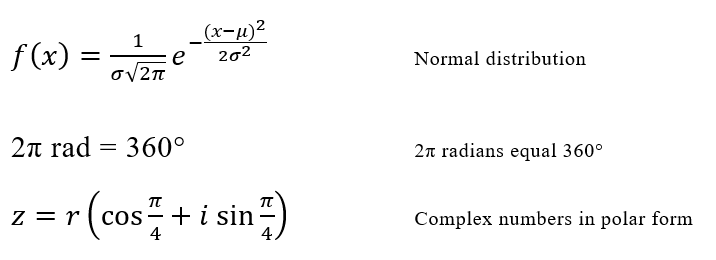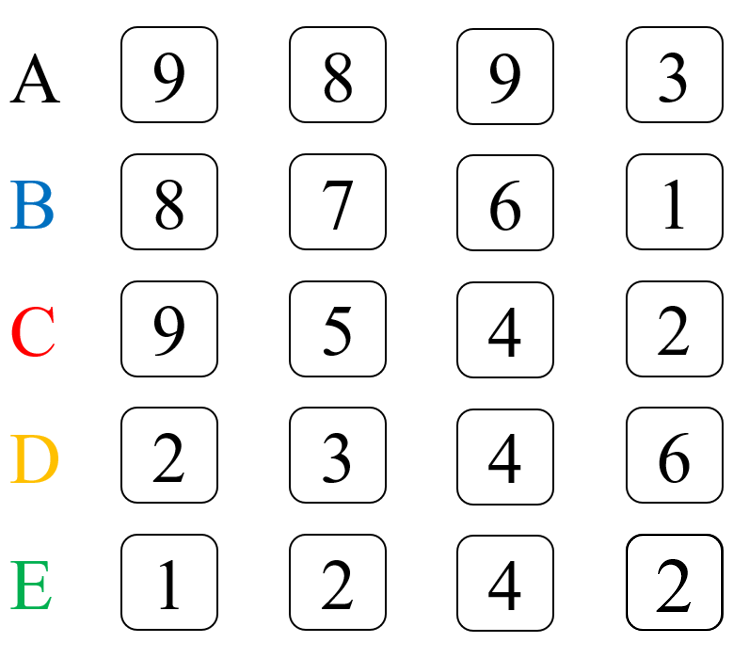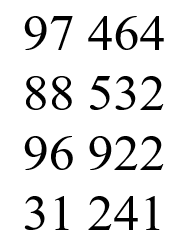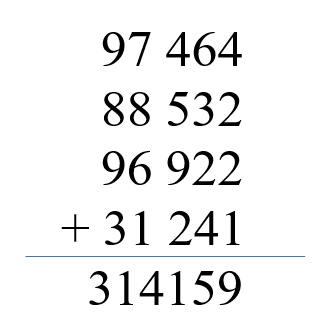The magic of π
This math magic trick can be used to celebrate Pi Day in secondary schools. The activity provides an opportunity to draw attention to the importance of the number π in mathematics and enthrall students with a magic trick.
Performing the trick
Start by writing the number π on the board and let students indicate as many decimals of the number as they can.
π ≈ 3,14159
Make sure you write out at least five decimals.
Have students give examples of when the number π is used in mathematics. In what contexts does the number appear? If the students are in secondary school, they probably know that the number π appears in geometric formulas for perimeter, area and volume.
If students have done some high school mathematics, they may recognize that the number π also appears in connection with the normal distribution and radians.
Show students that the number π also appears elsewhere in mathematics and physics, such as...
... in infinite sums...
... in Euler's famous identity...
… in the model of pendulum motion...
... and in the magnetic constant used to make calculations in magnetic fields.
Since the number π appears in all sorts of contexts, you have come to believe that the number π has magical properties, you tell the class. "You don't believe me?" you might say. "Let me prove it to you."
Select five pupils, A-E, and give each of them four slips of paper with numbers on them:
Have student A call out one of their four digits.
You write the digit on the board and instruct the student to put that slip of paper aside - that digit is now used up.
Now have student B, C, D and E - in that order - call out one of their four digits and then put that slip of paper aside. You write the chosen digits one after the other on the board, creating a five-digit number, for example
Repeat the procedure until there are four five-digit numbers underneath each other on the board, e.g.
Emphasize to students that the four five-digit numbers have been chosen completely at random. You had no control over which numbers would be written on the board. Then ask a student to calculate the sum of the four numbers, using a calculator.
Place a decimal point after the digit 3 and enjoy the students' reaction when they realize that the number formed is the first six digits of the number π.
"I told you so!" you might say. "The number π is magic. It appears everywhere."
What you secretly do
You don't have to do anything. The math does the work!
Why the trick works
Since you are asking students to choose the numbers in order, A-B-C-D-E, the sum of the numbers in the ones place will be the sum of the numbers you gave to student E. The sum of the numbers in the tens place will be the sum of the numbers you gave to student D, and the sum of the numbers in the hundreds place will be the sum of the numbers you gave to student C, and so on. Regardless of the order in which each student chooses to call out their four digits, the sum of the four five-digit numbers will always be the same, namely 314 159. This becomes particularly clear if you calculate the sum using an algorithm.
In the classroom
For the trick to work as intended, it is important that students do not call out the digit on a particular slip several times. Therefore, emphasize that students should put away the slips with the digits they have already called out.
Showing how the trick works breaks some of the magic of the number π. If you want to reveal the mathematics behind the trick - and this can be a good learning opportunity in itself - it is a good idea to wait until the next math lesson. That way, the number π keeps its’ magic during Pi Day.
Variations
One way to vary the trick is to write a zero and a decimal point on each line before asking students to call out their digits. That way the sum of the five numbers will be exactly the number π, without you having to add a decimal point afterwards. A disadvantage, however, is that students can more easily see in advance what the finale of the trick will be.













